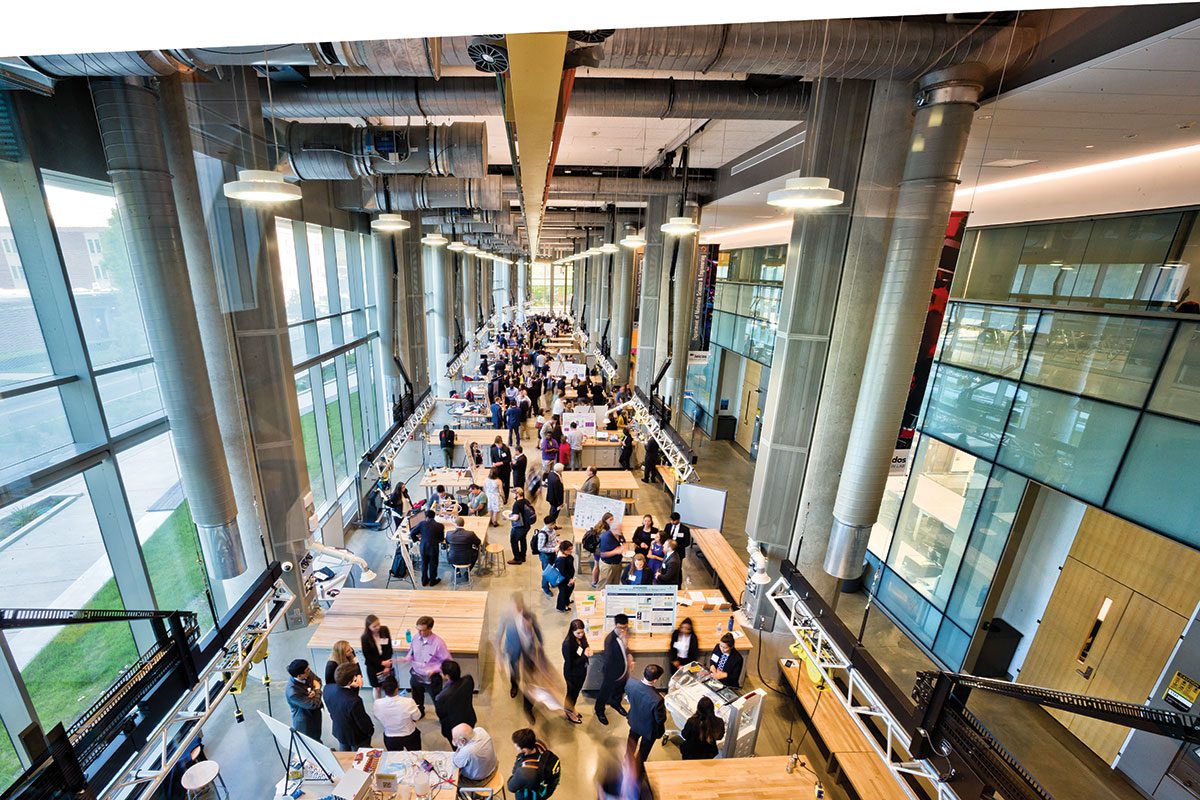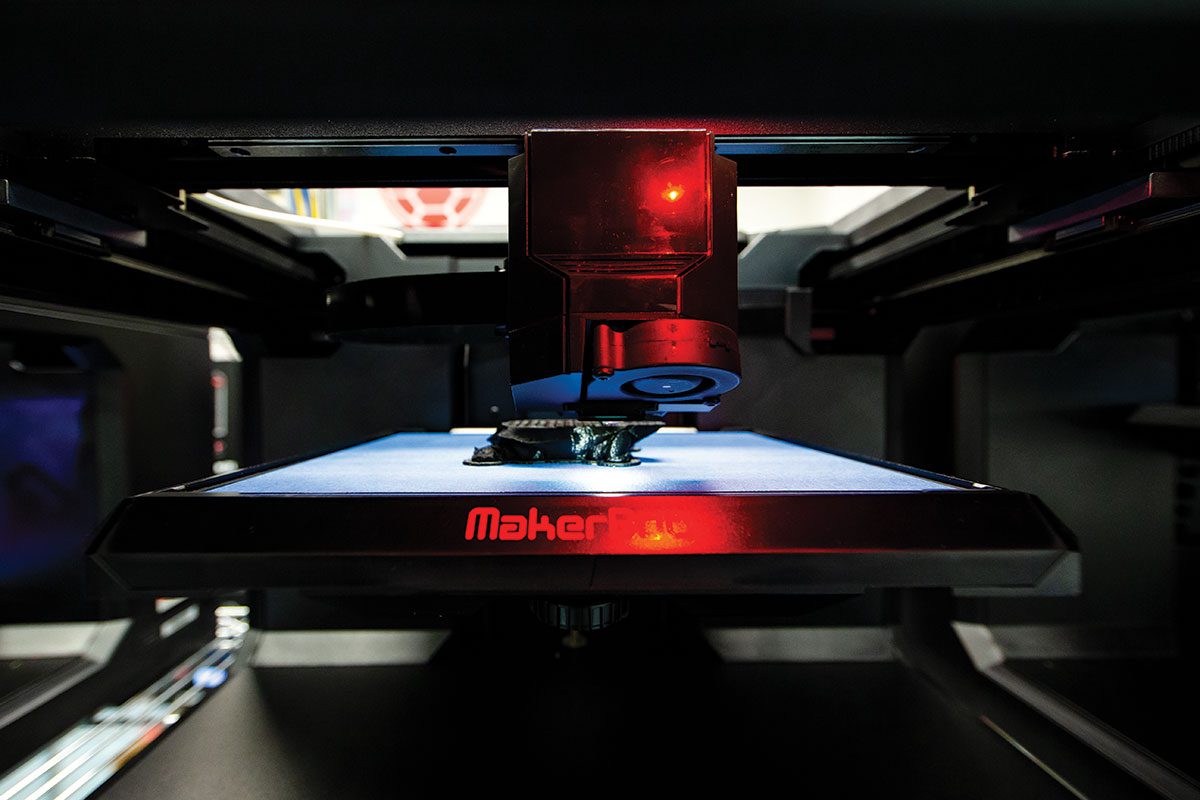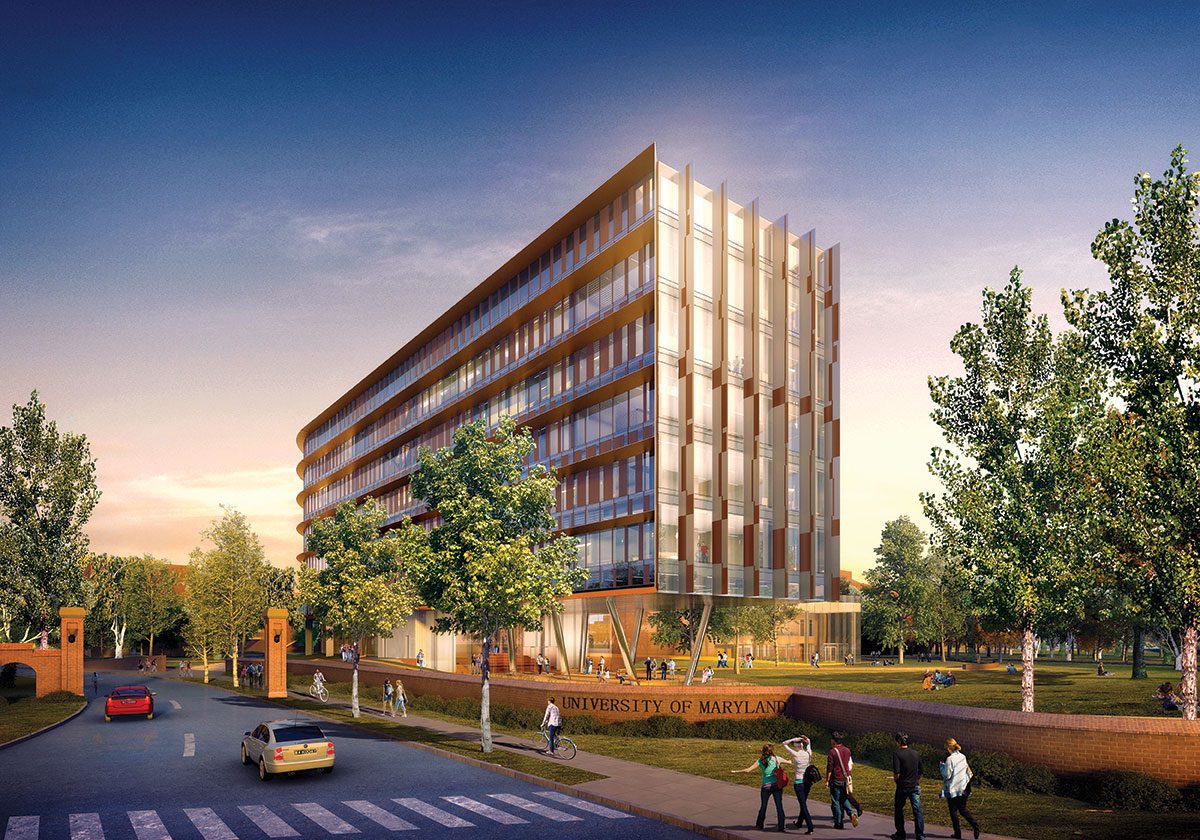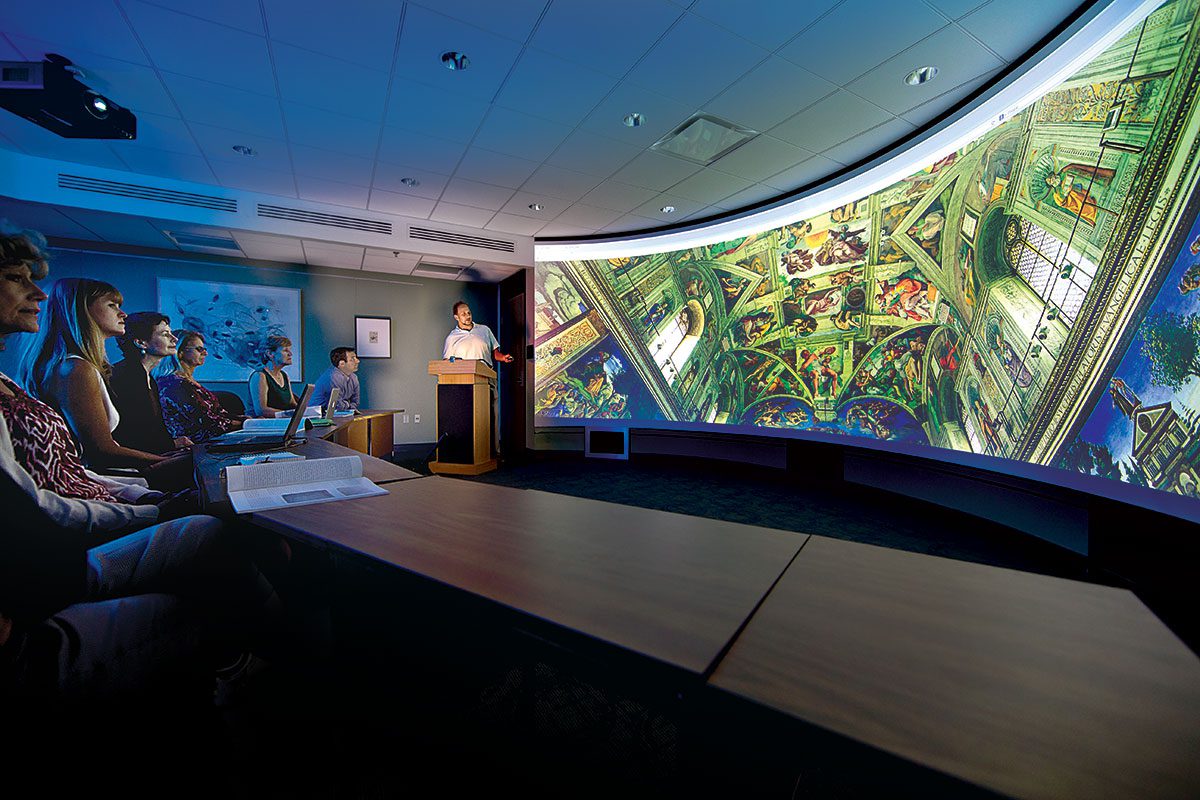RESEARCH & DISCOVERY
With stunning new research buildings opening around campus and a strategic location that fosters partnerships with government and industry, the University of Maryland is uniquely positioned for research critical to our global community.
The university is addressing important issues at its dozens of research centers and institutes. They include the Maryland Neuroimaging Center, the Institute for Advanced Computer Studies, the Earth System Science Interdisciplinary Center and the Joint Quantum Institute, a globally-renowned quantum physics partnership with the National Institute of Standards and Technology. We also collaborate with federal agencies and the private sector to advance research involving cancer, cybersecurity and food safety.

1 — A. James Clark Hall
This iconic new building brings together the Fischell Department of Bioengineering and the Robert E. Fischell Institute for Biomedical Devices, creating a regional hub for biomedical advances. The Innovation Lab gives students from all eight engineering disciplines flexible space to collaborate on research and design work.

2 — MakerBot Innovation Center
This facility in the Technology Advancement Program Building opened in 2015 with 50-plus MakerBot 3-D printers, more than tripling the number in the A. James Clark School of Engineering and putting the future of manufacturing in reach of all Maryland students.

3 — Campus Farm
This small working farm, which provides hands-on training to students in the animal sciences, includes sheep, cattle, horses and poultry, and harkens back to the university’s founding in 1856 as the Maryland Agricultural College.

4 — The Brendan Iribe Center for Computer Science and Engineering
Opened in 2019, this dramatic presence on Baltimore Avenue unites our top-ranked computer science department with the acclaimed Institute for Advanced Computer Studies, creating a hub for technology in UMD's new Discovery District.

5 — Collaboratory
Located in the Parren J. Mitchell Art-Sociology Building, the Michelle Smith Collaboratory for Visual Culture features an IMAX-like screen and other technology to study art and architecture in novel ways.
